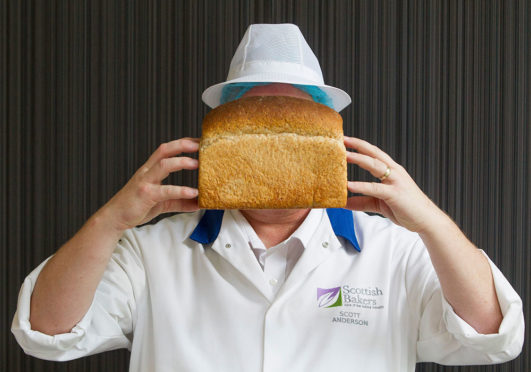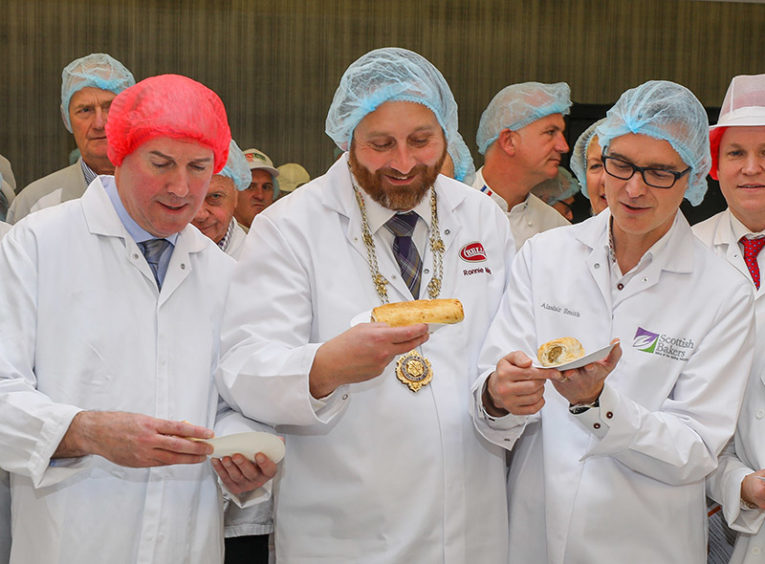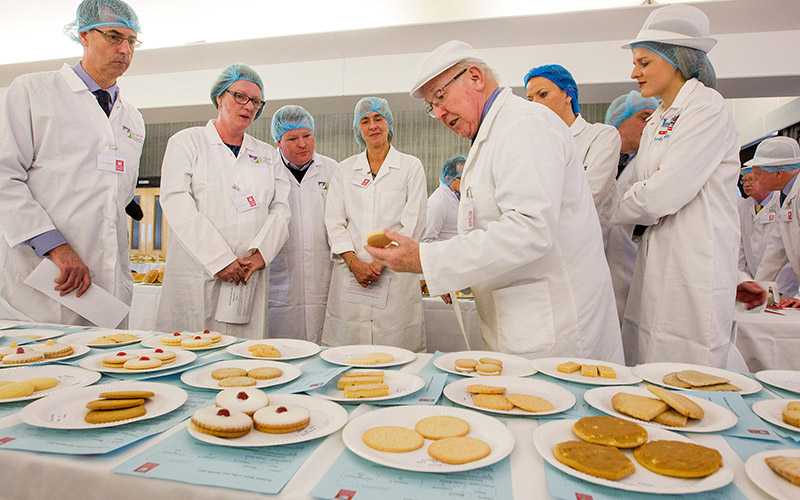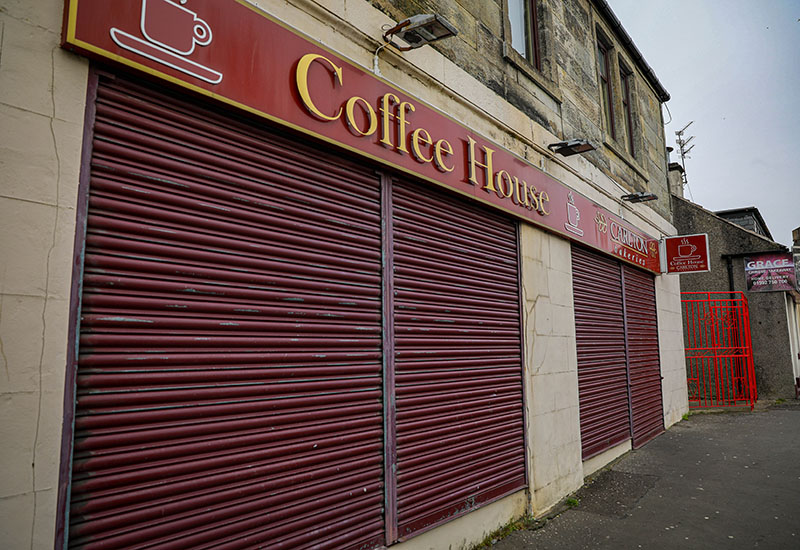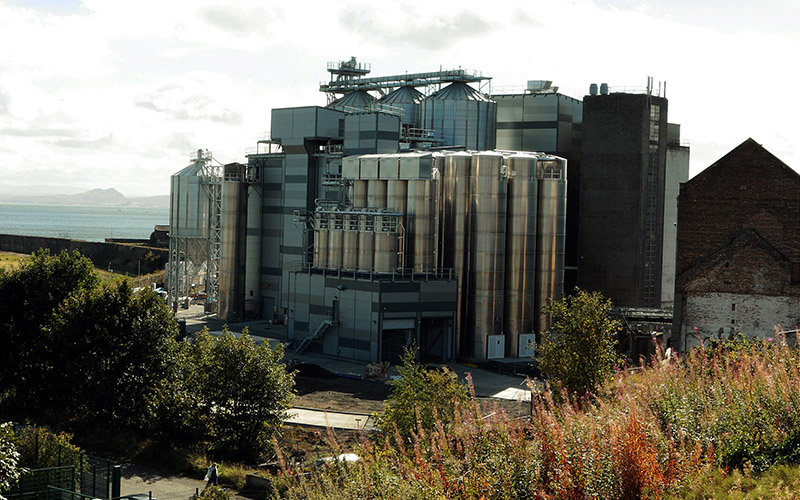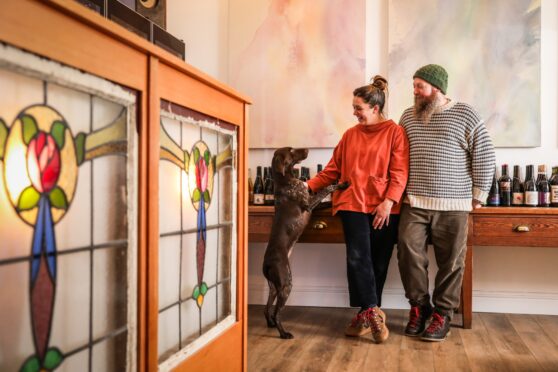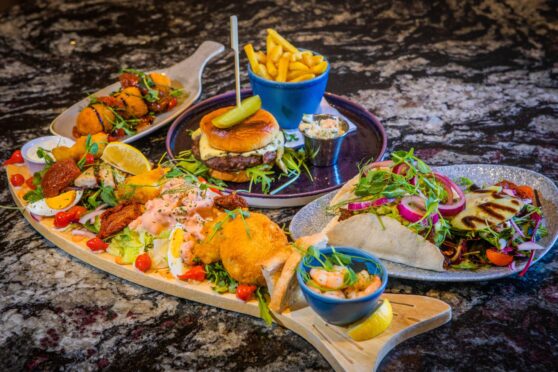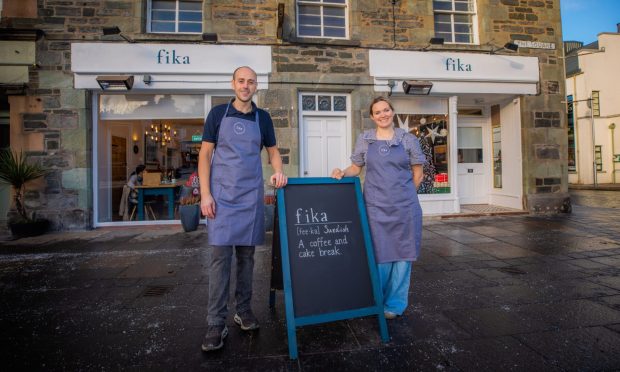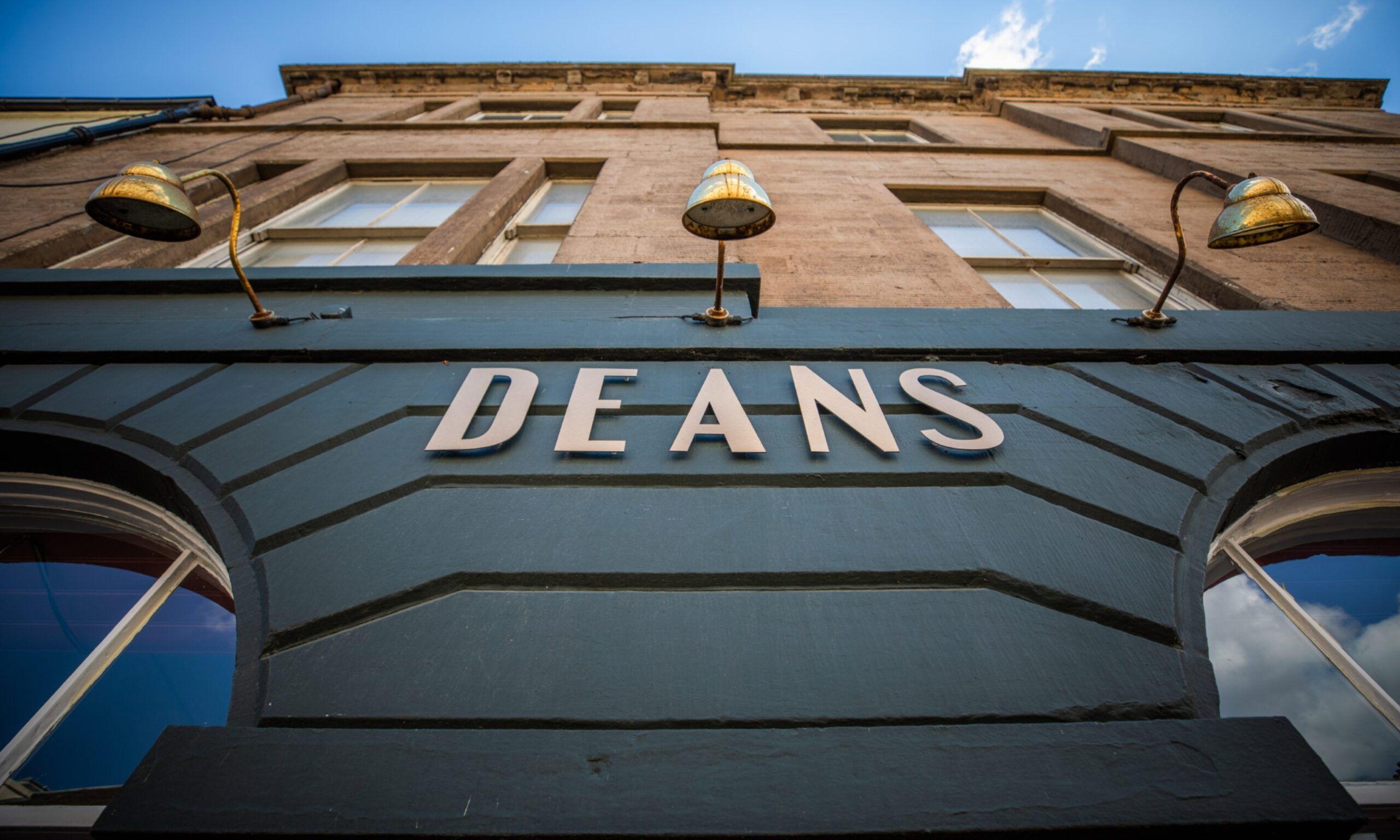Many of Scotland’s bakeries have been in business now for well over a century, and have become cornerstones of our communities.
Now that uninterrupted history is under threat, with businesses forced to close their doors during the lockdown period, and no certainty in site.
Amid these anxious times, bakeries that until now had stuck to the traditional way of operating – passed down through generations – have surprised even themselves by adapting the way they make their products available to customers. But, says Alasdair Smith, chief executive of Scottish Bakers which represents Scotland’s bakery trade, ensuring the right package of support is made available to members is essential to safeguarding their future for communities.
And there is concern that differences in the way the small grant scheme is being delivered in Scotland, compared with England, puts bakeries here at a disadvantage.
He explained: “In terms of the Government support, we’ve been very grateful for the support that’s been made available so far and we’ve got a very strong connection into the Scottish Government with whom myself and other trade associations deal with daily almost. Cash flow is the issue that a number of our businesses are facing.
“There are some differences with which the small grant scheme for instance is being administered in England than it is in Scotland which we would like to see looked at. In England you can get relief per property; in Scotland it is per business so that can make a significant difference between a business with 10 shops in Scotland which will get £25,000 and businesses in England that will get many multiples of that. That is causing some concern amongst a lot of our members at the moment and we’d certainly like to see that looked at.
“I know in other areas that perhaps looking at National Insurance holidays and other kinds of tax breaks over the coming weeks and months would be helpful. Anything that protects cash flow and ensures that when we do get past this crisis, businesses are able to get back up to speed as quickly and easily as possible.”
Scottish Bakers represents around 200 members, spanning large and small bakeries to flour producers, distributors, wholesalers and businesses providing equipment and support services to an industry that accounts for roughly a quarter of food and drink manufacturing in Scotland, employing 12,000 people.
“The importance of baking as an industry never mind as a cultural pillar of communities is really really important in Scotland and something that we do need to protect and grow because it’s tough times that we’re facing,” Alasdair added.
“One of our members celebrates 200 years in the same family this year which is an extraordinary achievement, another is celebrating 190 years so we represent a trade that’s a very ancient and rich tradition. This is a trade that goes back thousands upon thousands of years and we’re proud to uphold those traditions in the 21st century.”
Before the coronavirus reached these shores this was to be a year of celebration for Scottish Bakers and its members.
“One of the things that we do to shine a spotlight on our trade is an annual Scottish Baker of the Year competition where our membership put their best and favourite products up for independent judging.
“For 2020 we had revamped the competition, we’d introduced a customer choice award for favourite baker, pushing the votes online for the first time. We were just planning the judging day when all this came down upon us and we felt we had to pull the plug.
“It looked as though it was a year when our engagement with our membership and with members of the public had gone up and it’s such a shame for us all here in the team and a shame for our membership.”
Scottish Bakers has carried out two surveys among members – the first at the start of lockdown, and the second last week. They found an upturn in optimism from members following the Chancellor’s announcement of support for businesses, though around a third have closed their doors.
Alasdair said: “I’ve spoken to at least half of our members and we’ve done our own confidential impact survey which we did early on in the crisis and another concluded last week; so two studies three weeks apart. What that shows is that there is a significant number of businesses closing their doors. We don’t yet know if that’s permanently or whether that is just pulling the shutters down to get through the crisis until it is over. At a conservative estimate it looks like we’ve lost about a third of retail provision in bakeries at this stage of the crisis.
“The mood of the sector at the beginning of the crisis was very pessimistic. By the time we did the second impact study the optimism had improved and I think that’s probably as a result of the government initiatives kicking in. So things have improved and I think we’re seeing more bakeries feeling that although it’s going to be difficult and painful and there will be a clear financial hit, they can see a way out of it. We need to make sure that as a trade association we’re there to help support and promote the industry when we do get out the other end of this.
“About three months is the horizon [for survival] for about half of our membership. That’s an improved position from four or five weeks ago. The danger that we face is that if the support doesn’t do what it’s meant to do – and we hope that it will and there are signs that it is doing – we will forever change the character of the baking industry on Scotland’s high streets and in its communities. We were getting back to the position where we were really celebrating craft baking and local bakers and we’re at risk of losing that position again so we really want to make sure we can get through it.”
For Scotland’s flour producers, demand has never been higher. And although there is no supply issue for mills, shortages in our supermarkets are down to packaging, says Alasdair.
“It’s the different markets at play here that’s affected the supply in supermarkets. So with Carr’s, who are the dominant supplier to the trade in Scotland, there’s no issue with supply of grain or their output of flour. They’re producing more than they ever have. Normally they produce something like 2500 tonnes and now it’s 2900 tonnes a week so their output has gone through the roof. The specific issue with the availability of flour in our supermarkets is to do with the capacity to produce small retail bags of flour.. it’s to do with the packaging. I know that the flour producers are really trying to ramp that up and get some supply back into the shops because we’ve all become home bakers in the last little while.”
If there is a rainbow to be seen amid this crisis, it’s in the way some bakeries have been able to adapt quickly to provide online services – something that may well prove crucial to their ability to survive and thrive long-term. According to Alasdair, there has also been a clear movement from consumers to supporting local firms.
“What we’ve seen at the consumer end is a real celebration of local and I speak every morning with other trade associations and they’re all saying that the renewed focus on local supply is welcome to see. Local bakers have been pillars of the community for decades. If we can get through this and celebrate that and actually get people back to their local bakers to get their daily bread, savoury snacks and sweet treats then I think we can find a positive way out of the current crisis when it emerges.
“What’s been remarkable is the way a lot of them have adapted very quickly so we’re seeing more home delivery than ever before, more click and collect happening. We’re seeing a very traditional sector getting up and running with online shops when three months ago they would have run a mile from putting together an online shop. Some bakeries that had initially closed are now back baking again. Necessity is the mother of invention and we’re seeing a lot of evidence of that.
“Baking is a very traditional sector and has operated on very traditional lines. If there’s a positive to take from this it’s that it has motivated our members to look at online technologies and ways of engaging with their customers that is beyond just the bricks and mortars of their shops. That will absolutely prepare the sector for the next challenge once we get through this crisis.”
